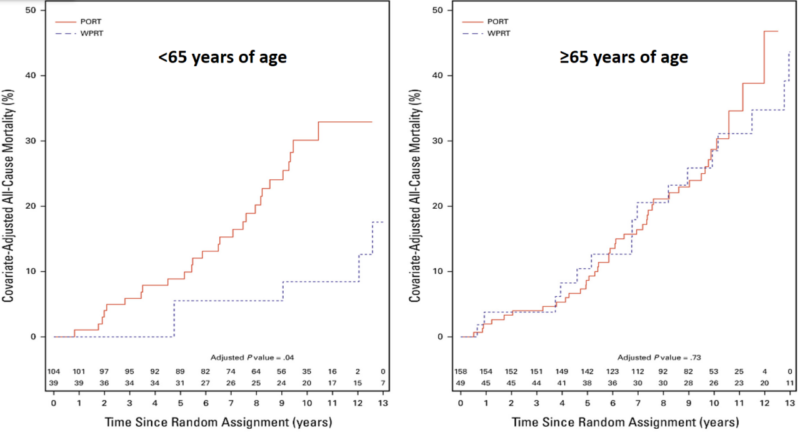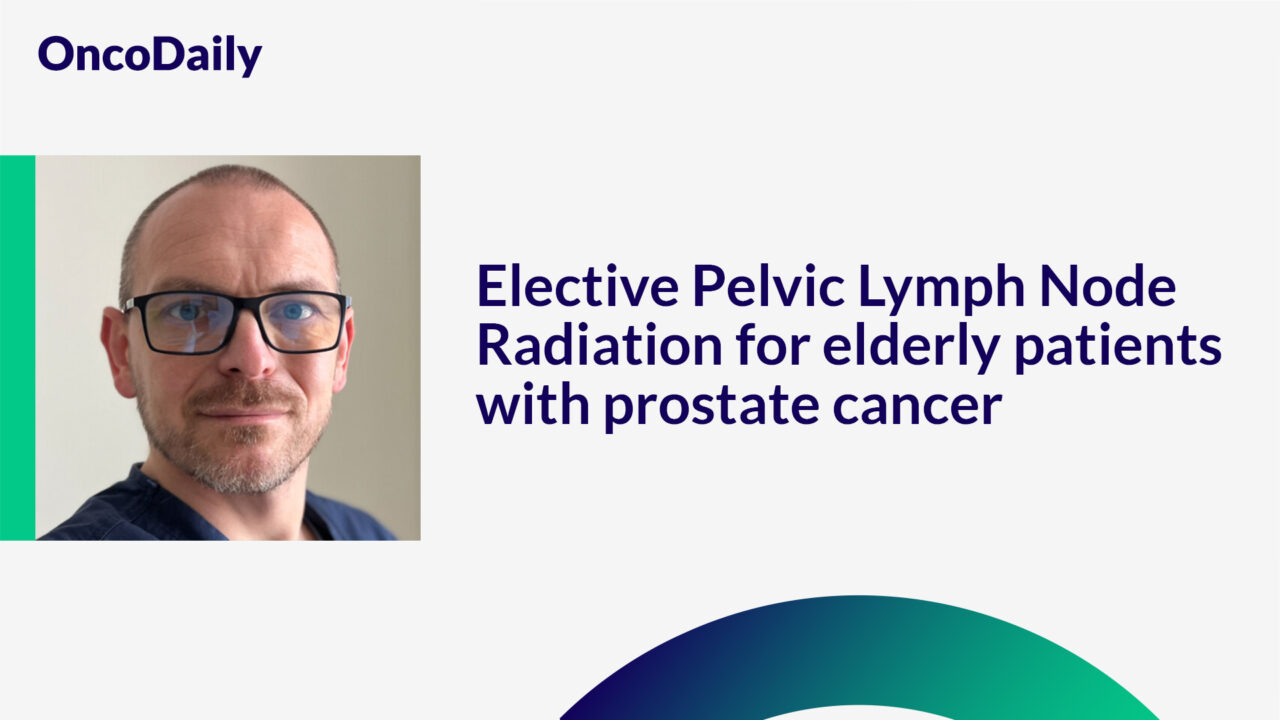Piotr Wysocki recently shared on LinkedIn:
“Sayan M et al. analyzed individual patient data from a phase III Dana-Farber Cancer Institute trial 05-043.
This trial included 350 men with nonmetastatic unfavorable-risk prostate cancer (PC). This trial initially compared the benefit of adding docetaxel to radiotherapy and 6-month ADT. The authors evaluated the role of whole-pelvic radiation therapy (WPRT), which, during the study, was at the treating physician’s discretion.
Of the 350 randomly assigned patients, 88 (25.14%) received WPRT. Compared with prostate-only radiotherapy (PORT), men who underwent WPRT had significantly longer follow-up, younger age, and more often T1c PC, but they had a similar rate of grading group 4-5 compared with patients who underwent PORT.
After a median follow-up of 10.20 years, 25.43% of patients died, of whom 47.2% because of PC. WPRT was associated with significantly lower all-cause mortality (ACM) HR=0.33; 95%CI 0.11-0.97 and prostate cancer-specific mortality (PCSM) HR=0.17; 95%CI, 0.02-1.35 only in patients younger than 65 years. In older patients (>65 years), the WPRT did not improve either ACM (HR=0.90; 95%CI, 0.48-1.68) or PCSM (HR=1.40; 95%CI 0.56-3.50)
The widespread of WPRT is based on a contemporary randomized clinical trial (POP-RT), that demonstrated improvement in short-term endpoints (biochemical failure-free survival and DFS). However, the individual patient data analysis provides critical information suggesting a lack of WPRT benefits in elderly unfavorable-risk prostate cancer patients. Based on Sayan M et al.’s study, WPRT should be recommended only in younger patients (<65 years).”

Authors: Mutlay Sayan, Ming-Hui Chen, Marian Loffredo, Elizabeth McMahon, Shalini Moningi, Peter F. Orio, Paul L. Nguyen, Anthony V. D’Amico
Source: Piotr Wysocki/LinkedIn
Piotr Wysocki leads the Clinical Oncology Department at University Hospital and the Faculty of Oncology at Jagiellonian University-Medical College in Krakow, Poland. As an advisor to the Polish Ministry of Health, he shapes the national cancer strategy.
His clinical expertise spans the systemic treatment of breast, gynecologic, and genitourinary cancers, with a focus on developing innovative metronomic chemotherapy-based therapies for advanced cancer patients who have undergone prior treatment.
Read other posts by Piotr Wysocki published on OncoDaily.


